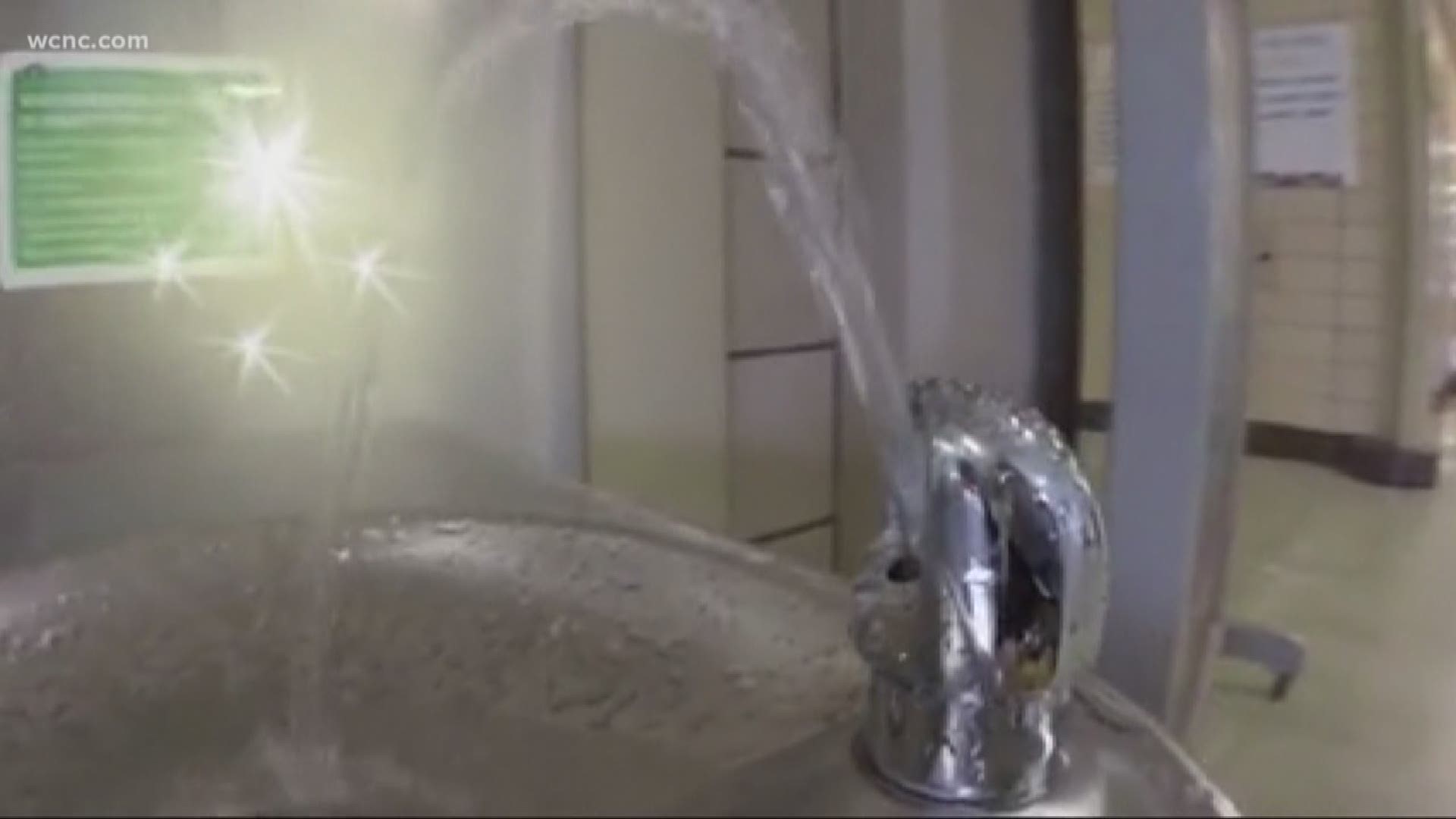CHARLOTTE, N.C. -- Another local school district plans to start testing for lead at some facilities following the discovery of elevated levels of lead inside more than two dozen Charlotte-Mecklenburg Schools.
A spokesperson with Fort Mill Schools confirmed the district will test some of its older facilities "as an extra precaution to ensure there is no contamination from older piping."
The district reports those tests are on top of its efforts to regularly flush pipes used for drinking and food preparation, cleaning water outlet screens regularly and cleaning water fountains.
In light of elevated lead levels at several CMS schools, the Mecklenburg County Health Department is recommending any parents with concerns should talk to their pediatrician.
"When environmental health has addressed issues in child care centers or when parents with a child in a child care center have had concerns public health has advised they go to their pediatrician," a spokesperson said. "We would recommend the same for students in schools."
As Fort Mill moves forward with new testing, CMS is now expanding its efforts beyond just elementary and into middle and high schools. The move comes after CMS testing showed lead exposure above the federal action level at some schools. The district published the results online after we asked why parents weren't previously notified.
While the tests and corrective action that followed are additional steps toward prevention, the results are especially important since after kids start kindergarten, national guidelines stop recommending risk assessments for lead during annual checkups.
Pediatricians ask lead-related questions routinely between the ages of six months and 6 years old, according to the American Academy of Pediatrics. That lead risk assessment can lead to an actual blood test.
While those tests are uncommon, they can also be the result of parents expressing concern.
"We also recommend pregnant women and children that are age 5 and under and live in or frequently visit pre-1978 structures have their blood lead level tested yearly or at the recommendation of their physician," a health department spokesperson said. "Public health tests women and children who participate in the WIC program."
State law does not require lead testing and as a result, several area schools report they don't test for lead. However, both Gaston County Schools and Union County Public Schools periodically test for lead.
"Recent test results have shown no issues and levels within the allowable limits," a UCPS spokesperson said.
In Gaston County, lead test results from last August show one elevated lead level in an office sink at Belmont Central Elementary.
"It was retested and the levels came back normal," a Gaston County Schools spokesperson said.
According to the CDC, even low levels of lead exposure can impact learning, growth and the central nervous system.
Rock Hill Schools reports, as part of best practices, it flushes its pipes at the start of the school year.
"'Flushing' means opening the source at the water main and letting it rinse or 'flush,'" a district spokesperson said. "This same practice is done at points within the buildings [i.e. sinks, faucets, drinking fountains, etc.] as recommended by SC DHEC and the EPA."
CMS officials maintain while the initial lead tests resulted in corrective action, testing found "no health or safety concerns." The district has created a website and set out parent messages and emails to make families aware of the situation.

